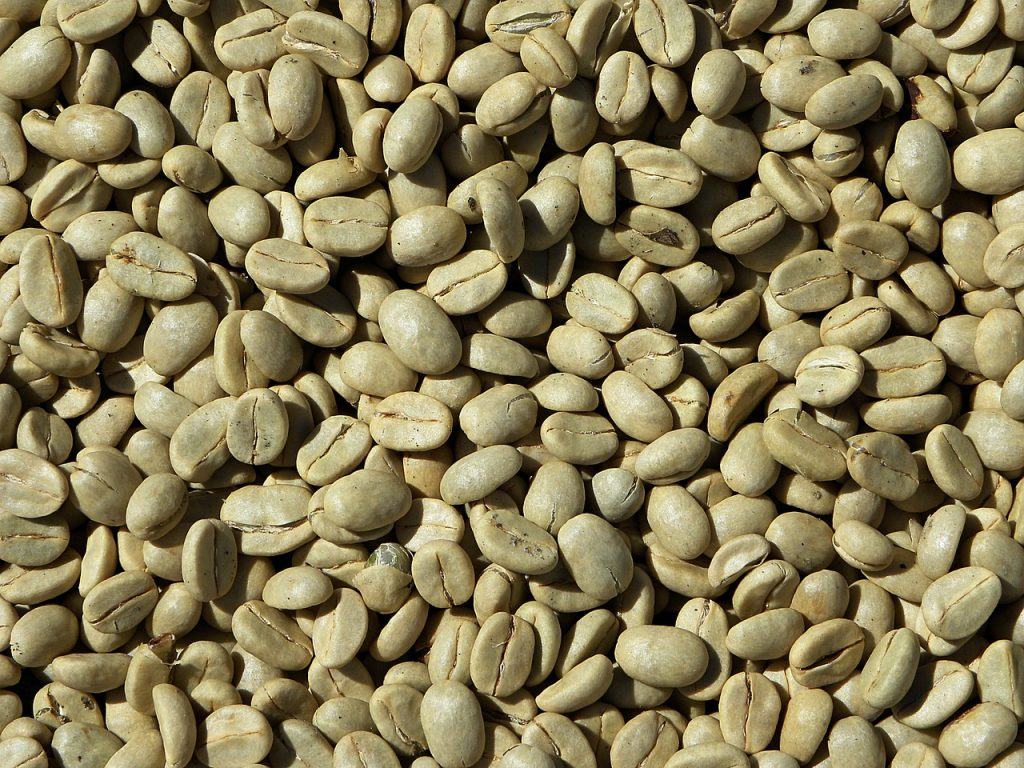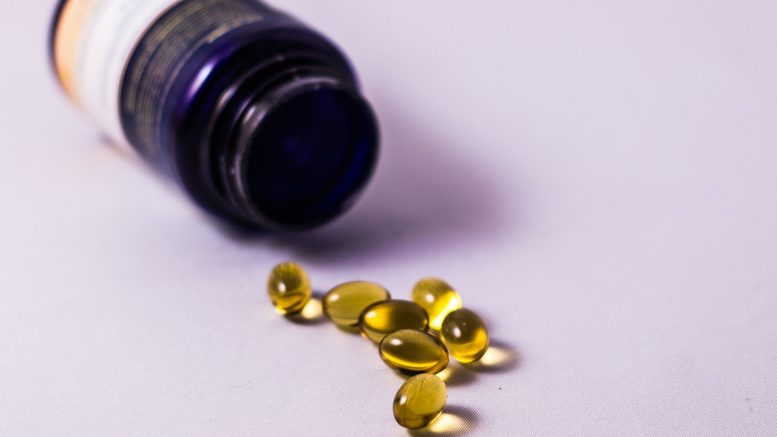Green Coffee bean may help with weight loss, but it is probably not worth the risk.
Green coffee beans are the seeds of the Coffee fruit. They are simply normal coffee beans that haven’t been roasted. When we roast coffee beans to produce drinking coffee, the process reduces the chemical chlorogenic acid level in the coffee beans. Chlorogenic acid is thought to be one of the antioxidants in coffee, and it is believed to have health benefits.
Obviously, green coffee beans have a higher level of chlorogenic acid when compared to roasted coffee beans, and green coffee does not make a good cup of coffee. Green coffee is another one of miracle supplement that Dr. Oz has publicized on TV as causing weight loss without the need to exercise.

Coffee beans, green or roasted, contain two substances believed to help with weight loss. The beans contain both caffeine and chlorogenic acid.
How it works: Caffeine is thought to decrease appetite and increase fat burning. Chlorogenic acid reportedly slows the breakdown of carbohydrates in the gut. I will discuss caffeine elsewhere. Here I want to look at green coffee bean extract (GCE).
Effectiveness: Many studies have shown that GCE may promote weight loss. The first study that is often quoted is by Vinson, and it was a double-blind placebo trial that looked at using GCE in overweight patients. At first glance, it would appear that GCE was effective at preventing obesity and possibly at losing weight. Since being published, the article has been retracted. It should no longer be used as evidence[1]. Another study looks at chlorogenic acid-supplemented coffee and its effect on weight loss and glucose levels. The researchers found that the group lost 5.4 kgs in the test group versus 1.7 Kgs in the control group. They concluded that chlorogenic acid-enriched coffee appears to significantly reduce the absorption and utilization of glucose from the diet[1]. A meta-analysis review concluded that GCE might assist in weight loss, but more research is needed[1].
Another interesting study shows that GCE increased lipid release and fat loss in patients with chlorogenic acids[2]. That study was paid for by a supplement company that produces a GCE supplement It is interesting and could use further research.
A website review that taught the benefit of GCE includes claims that it might help with blood pressure, obesity, dementia, type 2 diabetes, and Alzheimer’s. A review by Web MD, concluded that although there might be evidence to suggest that it might be helpful for weight loss and blood pressure, there is insufficient evidence to support such claims. Clearly, more research is needed[3].
If Web MD is not enough, a review by Mullin looked at all the research as a whole and concluded that although GCE might have a modest on increasing or maintaining weight loss that the risk is not worth the benefit. He recommended that we instead drink a lighter roast coffee if we want more chlorogenic acid in our diet[4].
Side effects: The following list is in alphabetical order. It is a pretty scary list. * denotes a more common side effect.
- Agitation
- Anxiety
- Calcium deficiencies
- Depression
- Diarrhea *
- Fatigue
- Flushing
- Glaucoma
- Headache
- Insomnia
- Increased blood pressure *
- Increased cholesterol
- Increased respiratory rate
- Increased heart rate *
- Irregular heartbeats
- Irritability
- Magnesium depletion
- Muscle tension
- Nausea
- Nervousness
- Restlessness
- Ringing in the ears (tinnitus)
- Trouble concentrating
- Upset Stomach
- Vomiting
- Worsened bleeding disorders
The bottom line: The truth is that green coffee bean extract may increase weight loss in the short term, but it is not worth the risk. We do not know the long-term side effects. As with most supplements, you have to remember that many of the studies were industry sponsored and they have a vested interest in ensuring that the study sells more of their product.
References:
- [1]I. Onakpoya, R. Terry, and E. Ernst, “The use of green coffee extract as a weight loss supplement: a systematic review and meta-analysis of randomised clinical trials.,” Gastroenterol Res Pract, vol. 2011, Jan. 2011, doi: 10.1155/2011/382852. [Online]. Available: https://www.ncbi.nlm.nih.gov/pubmed/20871849
- [2]J. Flanagan, A. Bily, Y. Rolland, and M. Roller, “Lipolytic activity of Svetol®, a decaffeinated green coffee bean extract.,” Phytother Res, vol. 28, no. 6, pp. 946–8, Jun. 2014, doi: 10.1002/ptr.5085. [Online]. Available: https://www.ncbi.nlm.nih.gov/pubmed/24338784
- [3]“Green Coffee,” Web MD. [Online]. Available: http://www.webmd.com/vitamins-supplements/ingredientmono-1264-green%20coffee.aspx?activeingredientid=1264. [Accessed: Oct. 13, 2016]
- [4]G. Mullin, “Supplements for weight loss: hype or help for obesity? Part II. The inside scoop on green coffee bean extract.,” Nutr Clin Pract, vol. 30, no. 2, pp. 311–2, Apr. 2015, doi: 10.1177/0884533615572655. [Online]. Available: https://www.ncbi.nlm.nih.gov/pubmed/25757951







Be the first to comment on "Supplements: Green Coffee Bean Extract"